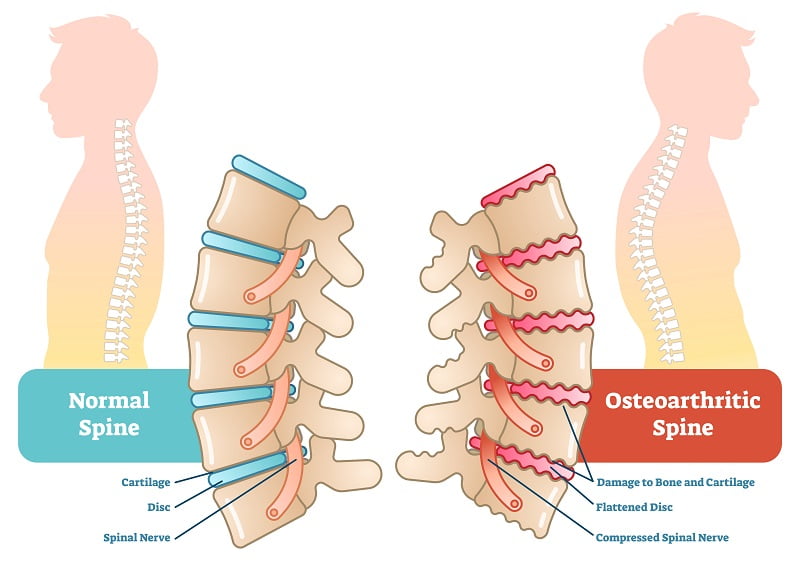Coronavirus Disease: Safety and Precaution for Heart Patients
- Updated on: Apr 28, 2020
- 4 min Read
- Published on Apr 28, 2020

Here is a brief excerpt from recommendations by Dr. Mohd Salman, MD, Internal Medicine for heart patients and their caretakers in view of ongoing coronavirus outbreak (COVID-19).
If you are having a pre existing heart condition, then you need to be more careful to prevent yourself from getting infection.
- You must ensure proper hand hygiene.
- Washing your hands more often with soap and water and using hand sanitizers is important.
- You should ensure proper respiratory hygiene.
- You should also maintain proper social distancing by not going out and by not participating in any gathering.
You may want to read these related articles:
Cold and Dry Cough: Is It COVID-19?
Coronavirus Infection (COVID-19) in Children
Also check our other Trusted Information for Coronaviruses and COVID-19:
The COVID-19 pandemic has been one of the most significant health crises in modern history. This highly contagious disease is caused by the SARS-CoV-2 virus and spreads rapidly through respiratory droplets. Since its emergence in December 2019, COVID-19 has infected millions of people worldwide, leading to countless deaths, overwhelmed healthcare systems, and significant economic disruptions.
Heart patients are among the most vulnerable groups during the COVID-19 pandemic. Research has shown that COVID-19 can cause severe complications in individuals with pre-existing heart conditions. People with cardiovascular disease are at a higher risk of developing severe symptoms and experiencing adverse outcomes, such as hospitalization, ICU admission, and death. In fact, studies have shown that COVID-19 patients with underlying heart conditions are at a significantly higher risk of mortality than those without.
Given the heightened risk of severe COVID-19 complications for heart patients, it is crucial to take proper safety measures. These measures are not only essential for protecting heart patients but also for reducing the overall spread of the virus.
Here are some key safety measures heart patients should take:
- Social distancing: Heart patients should maintain a safe distance from others to reduce the risk of COVID-19 transmission.
- Proper hand hygiene: Frequent hand washing with soap and water or alcohol-based hand sanitizers can help prevent the spread of the virus.
Understanding COVID-19 and how it affects the heart:
COVID-19 is primarily spread through respiratory droplets when an infected person coughs or sneezes. The most common symptoms of COVID-19 include fever, cough, and shortness of breath. However, some individuals may also experience fatigue, body aches, sore throat, and loss of taste or smell.
COVID-19 can have a significant impact on heart health. Studies have shown that the virus can cause inflammation of the heart muscle, leading to myocarditis and heart failure. COVID-19 can also exacerbate pre-existing heart conditions, such as hypertension and coronary artery disease, and increase the risk of heart attacks and strokes.
Individuals with pre-existing heart conditions, such as heart failure, cardiomyopathy, and hypertension, are at a higher risk of severe COVID-19 complications. These individuals should take extra precautions to protect themselves from the virus, including avoiding close contact with sick individuals, maintaining a healthy lifestyle, following medication schedules, and consulting with healthcare providers regularly.
Precautions for Heart Patients during COVID-19
A. General precautions to reduce the risk of COVID-19 infection:
- Social distancing: Heart patients should maintain a distance of at least 6 feet from others to reduce the risk of COVID-19 transmission. Avoiding crowded spaces and gatherings can also help minimize the risk of exposure.
- Proper hand hygiene: Washing hands frequently with soap and water for at least 20 seconds, or using alcohol-based hand sanitizers, can help kill the virus and reduce the risk of infection.
- Wearing masks: Wearing masks properly can help prevent the spread of respiratory droplets and reduce the risk of COVID-19 transmission. Heart patients should wear masks in public spaces and around others, especially if social distancing is not possible.
B. Specific precautions for heart patients:
- Avoiding close contact with sick individuals: Heart patients should avoid close contact with individuals who are sick or showing symptoms of COVID-19. This includes staying home if they are feeling unwell or have been exposed to someone who has tested positive for COVID-19.
- Maintaining a healthy lifestyle: A healthy lifestyle can help improve heart health and reduce the risk of COVID-19 complications. Heart patients should exercise regularly, eat a balanced diet, and get enough sleep. They should also avoid smoking and limit alcohol consumption.
- Following medication schedules: It is crucial for heart patients to follow their medication schedules and continue their treatment as prescribed by their healthcare provider. They should also ensure they have an adequate supply of their medications to avoid any interruption in their treatment.
- Consulting with healthcare providers regularly: Heart patients should consult with their healthcare providers regularly to monitor their condition and ensure they are receiving the appropriate care. They should also seek medical attention immediately if they experience any COVID-19 symptoms or any worsening of their heart condition.
The Importance of Mental Health for Heart Patients during COVID-19
A. The impact of COVID-19 on mental health:
The COVID-19 pandemic has had a profound impact on mental health, including for heart patients. The stress and anxiety caused by the pandemic can exacerbate existing mental health conditions and have negative effects on heart health. The fear of contracting the virus, social isolation, and financial worries can all contribute to increased stress levels, which can lead to high blood pressure, heart palpitations, and other heart-related symptoms.
B. Strategies for maintaining mental wellness during COVID-19:
It is crucial for heart patients to prioritize their mental health during the COVID-19 pandemic. Here are some strategies for maintaining mental wellness:
- Stay connected: Social distancing does not have to mean social isolation. Heart patients should stay connected with friends and loved ones through phone calls, video chats, or other virtual means. This can help reduce feelings of loneliness and provide emotional support during these challenging times.
- Practice self-care: Taking care of oneself is essential for mental health. Heart patients should engage in activities that bring them joy and relaxation, such as reading, listening to music, or practicing yoga. Eating a healthy diet, getting enough sleep, and exercising regularly can also help improve mental wellness.
- Seek professional help: Heart patients who are struggling with their mental health should seek professional help. Healthcare providers can provide guidance on coping strategies, and refer patients to mental health professionals if needed. Telemedicine and virtual therapy sessions are also available options for receiving mental health support.
- Stay informed but limit exposure to news: While it is important to stay informed about the pandemic, exposure to constant news updates and social media can be overwhelming and increase anxiety levels. Heart patients should limit their exposure to news and social media and instead focus on reliable sources of information.












